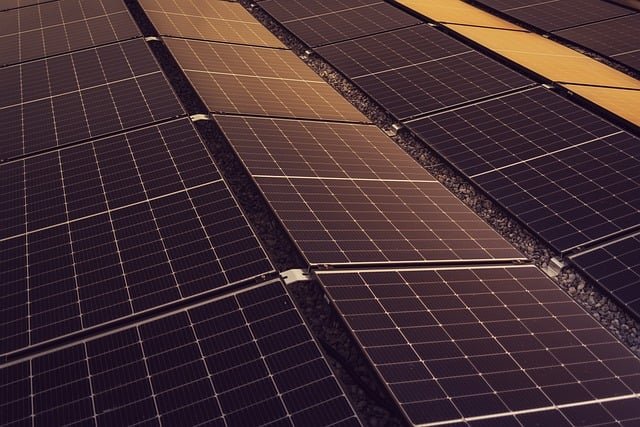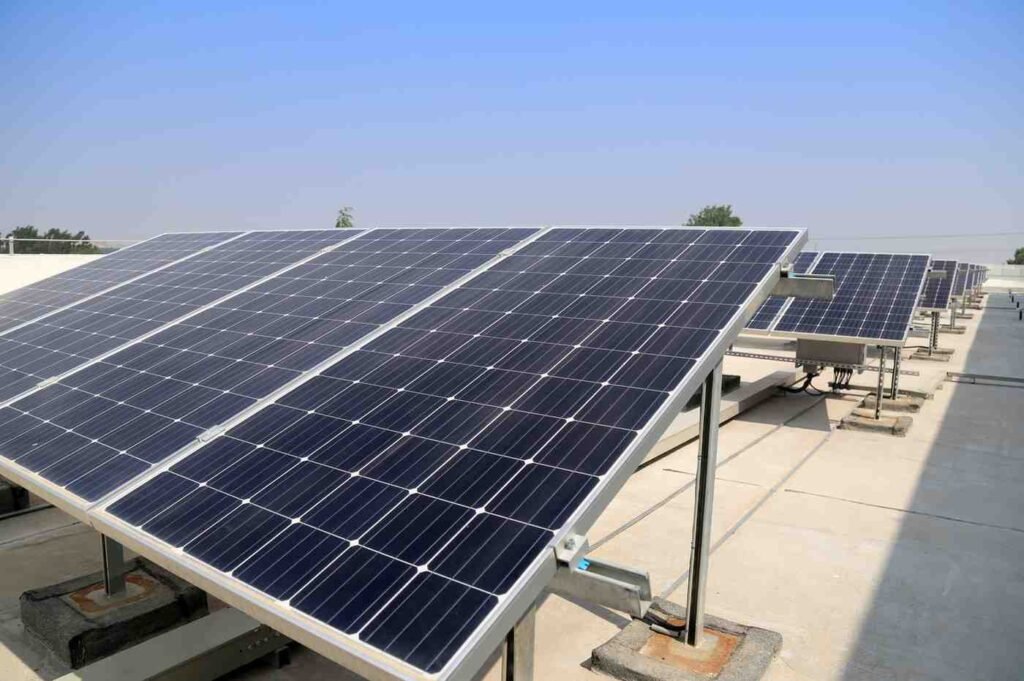There is never been a perfect time to utilize solar energy. The world is turning to solar energy and with good reason. Solar systems are innovating energy production with less cost. Depending on your specific needs, flexible solar panels are the best option to utilize solar power. They offer a unique set of benefits that make them ideal for various applications, especially where traditional panels fall short.
Installing flexible solar panels is a quick and reasonably priced way to start using them. Although flexible solar panels don’t have as much endurance as regular rigid solar panels, but they still have many benefits to avail. Let’s delve into what flexible solar panels are, their pricing in Pakistan, and why they might be the perfect solution for your energy needs.
What is Flexible Solar Panels?
Flexible solar panels are a new breed of solar technology that lives up to their name. Unlike rigid traditional panels, flexible panels can bend and conform to different surfaces. They are also known as flexible solar sheets. This flexibility opens up many opportunities for using solar power in places where traditional panels are impractical. Whether flexible solar panels for RV, boats, or curved roofs, flexible solar panels make harnessing solar energy easier than ever.
Flexible Solar Panels Price in Pakistan
In Pakistan, the price of flexible solar panels varies based on the brand, wattage, and quality. Generally, you can expect to pay between PKR 12,000 to PKR 40,000 for a standard flexible panel, depending on its efficiency and size. These flexible panels might be slightly more expensive than traditional ones. The convenience and versatility they offer make them worth the investment. For those looking to power RVs or other vehicles, investing in the best flexible solar panels is a smart choice.
Here is a general overview of the prices of flexible solar panels in Pakistan as of mid-2024:
| Wattage | Price Range (PKR) | Details |
|---|---|---|
| 400W | 33,000 – 53,000 | Ideal for residential and mobile applications like RVs. |
| 500W – 540W | 45,000 – 55,000 | Suitable for both residential and small commercial use. |
| 300W – 350W | 28,000 – 35,000 | Budget-friendly option, perfect for smaller setups or backup power. |
For the latest prices and detailed options, it’s advisable to check with local vendors or specialized online retailers.
What Makes Them Flexible?
Flexible solar panels are made from thin-film materials, making them much thinner than traditional solar panels. This is achieved through solution coating techniques, which are essential in producing thin-film solar cells. The panels are built with flexible materials, and each layer must maintain flexibility. Achieving flexibility in transport layers is relatively easy. Modern materials like perovskites and organics are both thin and efficient. However, finding the right flexible substrate and electrode remains a challenge.
Flexible Solar Panel Structure
The structure of a flexible solar panel consists of different layers. Here is a brief overview:
- Thin-Film Solar Cells: These are the core, made from materials like amorphous silicon or CIGS, allowing flexibility.
- Flexible Substrate: A lightweight plastic layer that supports the cells and provides bendability.
- Encapsulation Layer: A protective polymer layer that shields the cells from moisture, UV rays, and damage.
- Top Coating: Ensures durability against weather conditions.
- Electrical Contacts: Configured to move with the panel, maintaining efficiency.
When Should Flexible Panels Installed?
Flexible solar panels are perfect for situations where traditional solar panels can’t be used. For example, if you have an RV or a boat, flexible panels are ideal because they can conform to curved surfaces. They are also useful for residential installations where the roof can’t support the weight of standard solar panels or has an irregular shape. Additionally, these easy to install panels are a great choice for portable setups, like camping or outdoor events, where you need temporary solar power.
Flexible Solar Panels Vs. Standard Solar Panels

Both flexible and standard solar panels convert sunlight into energy using photovoltaic materials. Standard panels are thicker, heavier, and more durable due to their rigid construction and glass layers. Flexible panels, though less durable, offer easier installation and versatility across different applications.
Flexible solar panels come in two types: thin-film panels with photovoltaic material on a bendable surface and crystalline silicon panels with thin, slightly bendable wafers. Currently, crystalline silicon panels are more commonly used.
Benefits of Flexible Solar Panels
Flexible panels offer several benefits that make them an attractive option:
- Versatility: These panels can be installed on a variety of surfaces, including curved or uneven ones. The flexibility of these solar panels makes them a versatile solar product. You can use this product on different surfaces with easy installation.
- Lightweight: Their lightweight nature makes them easier to handle and install. You don’t need to be worried about arranging huge labor to install solar flexible sheets.
- Portability: Ideal for RVs, boats, and portable setups, flexible panels can be easily moved as needed. the lightweight and durable nature of these solar sheets makes them easy to move.
- Durability: Despite their thin structure, flexible panels are designed to withstand weather conditions. They can withstand intense weather conditions too.
- Affordable: Economically, these solar sheets are affordable in Pakistan. The best thing the installation process doesn’t cost much as well!
- Easy to Install: They often come with adhesive backing or mounting options, making installation straightforward.
These benefits make flexible solar panels a popular choice for those looking to harness solar power in non-traditional ways.
What Are Flexible Solar Panels Used For?
The versatility and high efficiency of flexible solar sheets make them a top choice for several applications.
RVs and Boats: These panels are ideal for mobile setups, especially where surfaces aren’t flat. Their lightweight and bendable nature makes them perfect for curved roofs on RVs or boats, providing a reliable source of solar energy on the go.
Residential Use: Flexible solar panels are particularly beneficial for homes with roofs that cannot support the weight of traditional panels or have unconventional shapes. They can be easily adapted to fit various roof designs, offering a practical solution for generating solar power without the need for structural changes.
Portable Power: Due to their lightweight and foldable design, flexible solar panels are a go-to choice for outdoor enthusiasts. They are convenient for camping, hiking, and outdoor events where temporary solar energy is needed, allowing users to charge devices or power small appliances in remote areas.
Industrial Uses: Some businesses install flexible solar panels on structures with irregular or non-flat surfaces, such as warehouses or factories. Their adaptability and ease of installation make them suitable for commercial applications where traditional panels would be impractical.
Overall, whether you’re seeking a portable energy solution, equipping a residential roof, or powering industrial operations, solar power flexible panels offer a versatile and efficient option for a wide range of needs.
Wrapping Up
Flexible solar panels are more than just a solution; they’re a gateway to creative energy use. In Pakistan, the growing accessibility and affordability of flexible solar panels mean you don’t have to compromise between quality and cost. They’re an investment in a sustainable future, tailored to fit your specific needs and lifestyle. Imagine the freedom of generating your own clean energy, no matter where you are or what surface you’re working with. Now is the perfect time to explore what flexible solar panels can do for you.
Frequently Asked Questions
Are flexible solar panels as good?
Flexible panels are a great option for specific needs. While they may not always match the efficiency of standard panels, they excel in situations where flexibility and lightweight design are crucial. They provide reliable solar energy and are particularly useful for portable and mobile applications.
What is the lifespan of a flexible solar panel?
Solar Flexible sheets typically last between 5 to 10 years, depending on usage and environmental factors. This is shorter than the lifespan of traditional panels, which can last up to 25 years.
How many watts is a flexible solar panel?
The wattage of a flexible solar panel can range from 50 watts to 300 watts or more, depending on the size and quality. Higher-wattage panels are suitable for powering larger devices or systems, while smaller-wattage panels are perfect for portable or minor power needs.
Can we use flexible solar panels on roofs?
Yes, flexible solar panels can be used on roofs, especially those that can’t support heavy panels or have unusual shapes. Their easy installation makes them a convenient option for various roof types.



